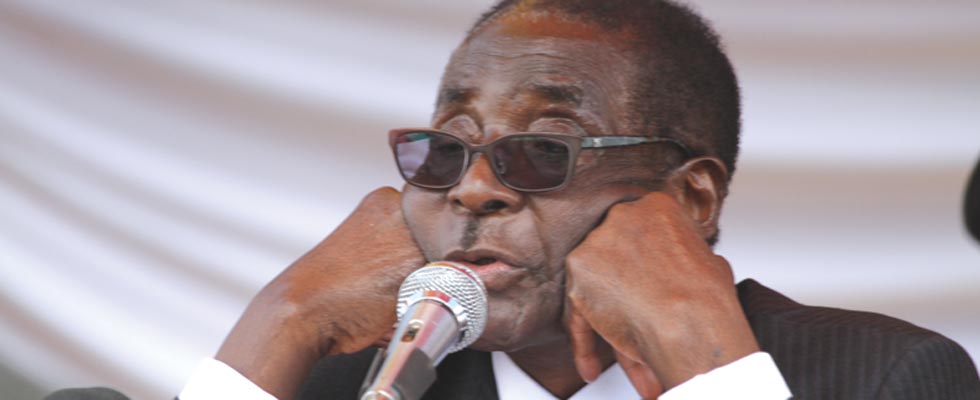
African Parliamentarians Network against Corruption (APNAC) Zimbabwe chapter has challenged President Robert Mugabe and local legislators to take a leaf from newly sworn in Namibian President Hage Geingob and First Lady Monica who last week publicly declared their assets.
By VENERANDA LANGA
The anti-corruption watchdog said the move by the Namibian leader goes a long way in curbing corruption at the highest level.
Current chairperson of APNAC Willias Madzimure said the move by Geingob must be applauded as it was very rare for African Presidents to declare assets. If anything, he said, most of them were being accused of corruptly amassing wealth.
Madzimure, a former MP for Kambuzuma, is still serving his two-year term as chairperson of the anti-corruption Parliamentary body which is open to both sitting and former MPs.
“As APNAC Zimbabwe charter we are very impressed that the Namibian President Geingob has volunteered to declare his assets even if the law in that country does not oblige him to do so,” he said.
“We applaud the move as it is unprecedented in Africa to have a president who does that in line with the Sadc protocol on corruption and for the sake of transparency.”
Geingob last week stated in his maiden State of the Nation Address that he was going to declare all his and the First Lady’s personal assets for the sake of transparency and to help prevent undue benefits being accrued by public officials and to avoid conflict of interest.
- Chamisa under fire over US$120K donation
- Mavhunga puts DeMbare into Chibuku quarterfinals
- Pension funds bet on Cabora Bassa oilfields
- Councils defy govt fire tender directive
Keep Reading
“Although the law does not require the Namibian Head of State to disclose his personal assets, Geingob said he felt obliged to do so,” Nam News Network reported.
Geingob was quoted saying: “These disclosures will be made in line with the belief that transparency starts at the top. I am deeply convinced that accountability, transparency and inclusive leadership are for sustained socio-economic development and the improvement of the lives of all the people.”
Madzimure said this was a good example of determination by a Sadc Head of State to curb corruption.
Since 2010, APNAC Zimbabwe has been battling to ensure MPs, ministers and other public officials declare their assets to the public.
Section 19 of the Parliament Standing Rules and Orders actually compels MPs to declare their assets and it reads: “Every member shall register all [of] his or her financial interests in a book to be maintained under the direction of the Speaker and such registration shall be in a manner specified in the Code of Conduct and Ethics for members approved by the House.”
Madzimure said a code of conduct had been developed during the Seventh Parliament to ensure MPs declared their assets.
However, he said only 25 legislators had declared their assets during the Seventh Parliament, but those who retained their seats were not made to re-register them. New MPs also did not declare their assets when they were sworn in for the Eighth Parliament. Speaker of the National Assembly Jacob Mudenda said they were still revising the format of the forms to be used for declaration of assets.
Madzimure said it was imperative for MPs to do constant follow ups on how natural resources and budgets were accounted for in the country in order to curb corruption.
“It is all up to the Speaker to enforce the law because the code of conduct is already there and all that needs to be done is to ensure that it is followed,” he said.
The APNAC chairman said plans were also underway to set up a secretariat which would be based at Parliament building to do constant follow ups on how money from donors, loans from institutions like African Development Bank, China Exim Bank and other financial institutions were accounted for.











